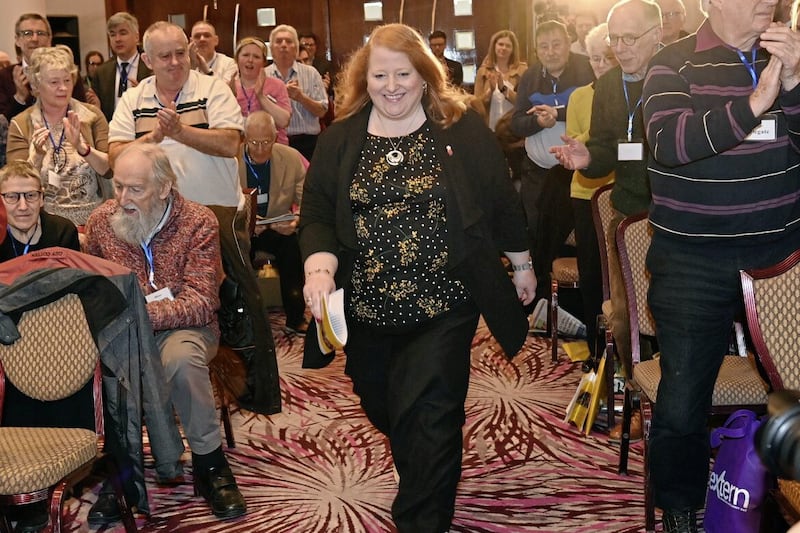THE conditions for triggering a border poll have yet to be met despite Sinn Féin's victory in the Stormont election, according to psephologist Nicholas Whyte.
In March, the respected analyst told The Irish News that if the collective vote of nationalist parties outnumbered their unionist counterparts then the secretary of state should be minded to call a referendum on the north's constitutional future.
However, Mr Whyte believes the benchmark for a border poll should be a greater number of nationalist seats than unionist in the assembly.
His comments came as Secretary of State Brandon Lewis ruled out calling a referendum on Irish unity, while Sinn Féin president Mary Lou McDonald has raised the prospect of a border poll within the next five years.
The margin between the unionist and nationalist blocs in terms of first preference votes appears to have widened following last Thursday's election, with a migration of votes from the SDLP to Alliance's thought to be a key factor.
Assembly Election Results Hub
According to Mr Whyte's calculations, posted on Twitter on Friday, the number of unionist votes adds up to 360,648, with nationalists together accumulating 343,271 votes – a difference of 17,377 or 4.8 percentage points.
At the last assembly election in 2017, the margin between the two blocs was 3.8 percentage points.
The gap in terms of MLAs has also widened from one in 2017 to two, with unionists claiming 37 seats compared to nationalism's 35.
However, ahead of an assembly vote on the retention of the protocol scheduled for 2024, there appears to be significantly more parties in favour of the post-Brexit trade arrangements.
Pro-protocol parties number 53 – including People Before Profit – while those opposed to checks on goods arriving from Britain total 37.
Mr Whyte said his benchmark for calling a referendum had not been met and was "further away than it was in 2017".
"This assembly has actually seen the least number of nationalist seats returned proportionately that at any time since the Good Friday Agreement," he said.
"Even if the votes gap had narrowed, the seats gap has widened."
The Brussels-based psephologist said unionist and nationalist votes had also declined proportionately.
"The bit that isn't in those binary figures is arguably the more important, which is that the vote for the non-aligned is bigger than it's ever been," he said.
"The reason nationalists are so close to outpolling unionists is not that nationalists have gained vote share but that unionists have lost it."
Ms McDonald told BBC Radio 4 that she wanted to a see an island-wide citizens' assembly to "plan for change".
"The only one clear demand that I have made consistently for the last number of years is that preparation for constitutional change needed to start," she said.
Mr Lewis said the nationalist vote had not gone up, and that the unionist vote remains higher.
"Sinn Féin haven't gained seats, we haven't seen a growth in the nationalist vote and indeed the unionist vote is still larger and the number of seats held by unionist parties is still larger," he told BBC's Sunday Politics.








